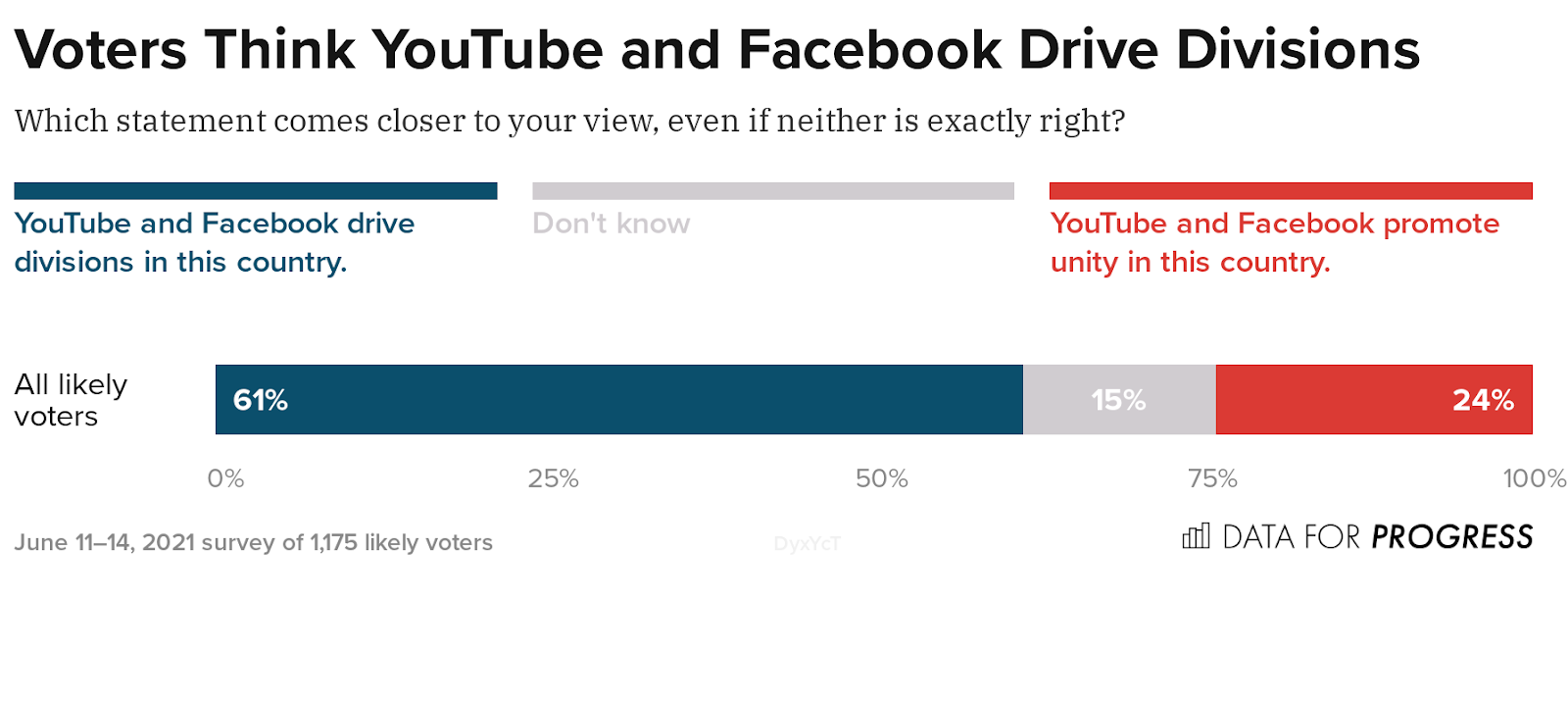Voters Believe Social Media Companies Profiting From Conspiracies and Lies Are Driving Divisions in America
By Jiore Craig
Much of the news coverage following the 2020 election and insurrection on January 6th, 2021 suggested that social media played some role in the way disinformation and conspiracy theories about the election spread. As part of a June 2021 survey, Data for Progress, with input from expert disinformation analyst Jiore Craig, polled national likely voters’ attitudes toward social media and their view of its effects in amplifying election lies and conspiracies, and degrading national unity. The results are stark. Voters see a clear relationship between social media and the conspiracies and lies driving division in our country.
We find that a majority of voters see social media playing a significant role in the spread of lies and promotion of division in this country. Furthemore, a majority of voters strongly agree that social media CEOs made money off election lies and conspiracies. Taken with findings from an additional recent Data for Progress survey of likely voters around attitudes toward social media, evidence that voters are concerned about social media companies and their role in spreading and amplifying conspiracies continues to pile on.
Results
We first asked voters what role they think social media plays in spreading lies from person to person. A majority of voters (58 percent) see social media playing a very significant role. We find that voters that self-identify as Republicans think that social media companies play a “very significant role” in spreading lies at a slightly higher rate than their peers who self-identify as Democrats.
We next wanted to know how easy voters thought it would be to course correct for these lies and found a majority of voters see undoing the damage of these conspiracies and lies as a challenge. A large majority (68 percent) agree that once a user is hooked on a conspiracy they learn about on social media, it is very hard to change their minds.
We further find voters take a critical view of social media companies and their CEOs in this context, suggesting they prioritized making money and keeping users on their products. A strong majority of voters (66 percent) agree social media CEOs profited off of lies and conspiracies on their platform.
A majority of voters (63 percent), also believe that companies actively allowed conspiracies and lies to circultate because it kept users hooked on their product as opposed to taking any action to stop the amplification of lies.
We also asked whether specific companies were doing more good than bad, and found 61 percent of voters think that YouTube and Facebook drive division in this country more than they promote unity.
While voters may be divided on how they viewed the 2020 election, these results suggest they are mostly united in the way they see social media companies and their CEOs benefitting from election lies and conspiracies. Going forward, as legislators respond to these concerns, social media CEOs may face more intense pressure to answer for their commitment to profit over user safety and protecting our democratic system.
Jiore Craig is an expert in disinformation, social media, and public opinion. She was formerly a Vice President at GQR with experience conducting research into voters’ attitudes and social media habits in more than a dozen countries.
Methodology
From June 11 to 14, 2021, Data for Progress conducted a survey of 1,175 likely voters nationally using web panel respondents. The sample was weighted to be representative of likely voters by age, gender, education, race, and voting history. The survey was conducted in English. The margin of error is ±3 percentage points. N=1175 unless otherwise specified. Some values may not add up to 100 due to rounding.





